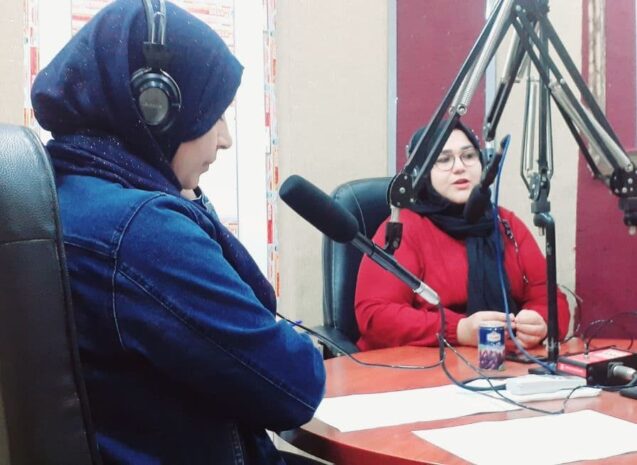Women in Libyan Newsrooms: An Analysis of the Role of Women in Media Content Production in Libya (2021)
This research sought to deepen our understanding of the role that Libyan women currently play in the production and dissemination of media content at an institutional level, including the identification of obstacles to equal access, participation and progression in Libya. Quantitative data to assess the number of women who work in the media in Libya, their job functions and employment status was gathered through inquiries with over 30 Libyan media organizations. In addition, qualitative in-depth interviews were conducted with female experts in Libya (via Zoom or WhatsApp) to gain insight into the working environment of women in media organizations as well as the challenges and opportunities they face in the media industry.
The study found that the mainstream media reflects the partisan sociopolitical narratives of powerful yet conservative elites. These narratives are patriarchal in their nature and exacerbate deeply entrenched notions of male dominance over women and stereotypical notions of woman as wives, mothers and victims. In a similar spirit, fixed positions and views on the types of women that work in the media continue to be defined by archaic perceptions of women in the public eye as promiscuous and improper. This prevents many women from pursuing careers in the media as families and communities project their own fears and insecurities on younger generations. Fundamentally conservative beliefs and attitudes in Libyan society thus underpin the lack of gender equality and compromised conditions for women’s rights in the country.
Actual representation of women in leadership positions is however promising: 18 media outlets interviewed within the framework of this study employ at least one woman in a senior position related to the production of content. 8 out of the 31 organizations employ two or more women in executive positions pertaining to the production of content. The research found that small local media outlets such as online channels, newspapers and radios provide opportunities for women to occupy executive positions. In this regard, they are more inclusive than the large national TV stations.
